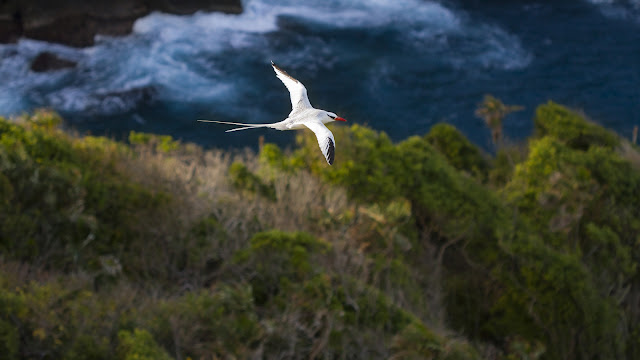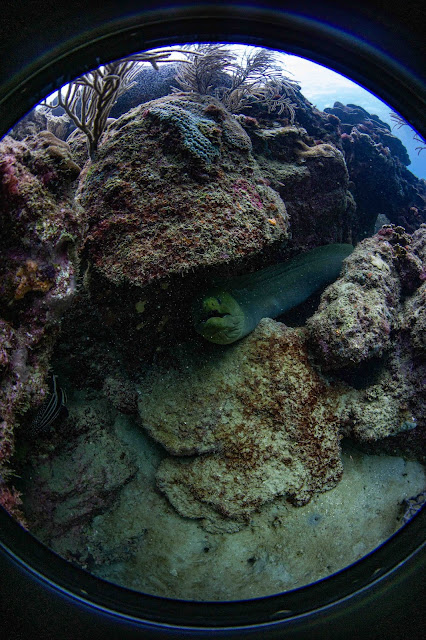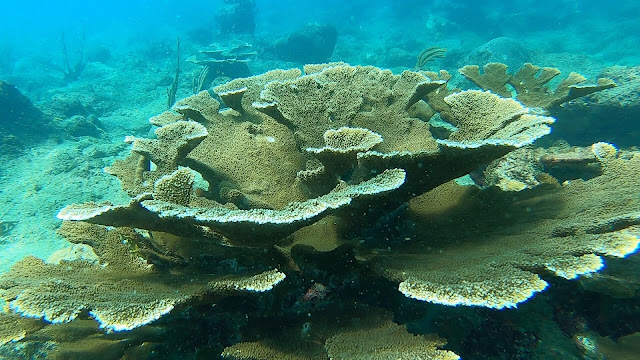Whales Ashore!
Whale strandings are mysteries whenever they occur, and impossible to predict. Marine ecologist Dr Anjani Ganase considers some recent theories about whales’ navigational systems using the earth’s geomagnetic field and the sun. Human-driven changes are also causes.
Over the last month, four melon headed whales stranded themselves on Moruga Beach, and later on there was a single stranding on Maracas Beach. Last year there was a single stranding of a pregnant melon headed whale in Princes Bay, Tobago. These strandings of melon headed whales in several locations around Trinidad and Tobago begs the question of what is the cause of these strandings in recent months. Necropsy – after death analysis - by the UWI School of Veterinary Medicine revealed parasitic infection in one examination of the whale carcasses. Melon headed whales are deep water toothed whales that can be found in tropical waters worldwide, down to 6000 feet depth and far from coastal areas. They usually occur in large pods up to thousands of individuals swimming together in the deep blue and feeding on squid and fish.
 |
| Pod of Melon Headed Whales. Photo Credit: Sam Farkas, NOAA OAR Photo Contest 2014 |
A mass-stranding event of marine mammals is defined as two or more living individuals that are stranded in the same place and time. How do we assess the proximity of places where strandings occur, and the intervals of time to consider whether the strandings are related events or not? While the synchronous stranding of a pod of dolphins on a single beach may be a clear case of mass stranding owing to navigation gone wrong, what about a series of strandings that may occur days or weeks apart or within the vicinity of a few beaches?
Why whales might rush to shallow water or come ashore
Individual whales are thought to purposefully strand themselves when they are sick or injured and not capable of regular diving and breathing activities. Their alternative may be to get to shallow locations to keep breathing. However, mass strandings tend to be the result of communal impacts. Common causes of mass stranding events may be the result of geomagnetic storms caused by a rapid transfer of energy from solar wind in space and the earth’s atmosphere. Whales that rely heavily on the earth’s magnetic field to navigate, may be confused by these events that result in navigational mix-ups. For whale species that migrate along coastal areas, this may result in beaching. Severe storm events may also displace whales into unknown territory that may result in strandings. There may also be indirect impacts of whale strandings, and these may include factors that affect their prey, such as changes in wind, sea surface temperatures and deep ocean currents. Other cases of individual and mass strandings are the result of human activities including pollution which may result in the rise in disease in whales, the restructuring of coastal areas such as land reclamation, and the use of underwater seismic or sonar equipment that confuse whales, as well as boat strikes.
Disorientation and decompression
Scientists have found the mass strandings of Beaked Whales in the Canary Islands were associated with the use of medium frequency sonar in naval exercises. Autopsies of the stranded whales revealed severe haemorrhaging due to the presence of fat or gas embolisms in the blood vessels of the whales. The whales appeared to have suffered severe cases of decompression sickness that resulted in their deaths. Decompression sickness is an acute illness SCUBA divers get when they ascend from the depths too quickly. As a diver descends in the water column, the diver is increasingly under pressure, which causes nitrogen gas to be forced out of the blood vessels into the surrounding tissues. When the diver ascends slowly the nitrogen moves in the opposite direction back into the blood stream. However, if the diver ascends too quickly the gas will expand and form gas bubbles in the body. This results in considerable discomfort and pain and even death. Marine mammals are known to be adapted to overcoming decompression illness through physical and behavioural changes. Nonetheless, scientists speculate that under extreme stress, such as in response to the sonar frequencies, the whales may exhibit fight or flight responses that override proper diving procedures, and which can kill them. They are literally scared to death. The use of sonar is now banned in the Canary Islands and has been seen to result in a decline strandings in the area. However these types of undersea surveys are commonly used in other places; for instance in surveys for oil and gas.
Why whales might rush to shallow water or come ashore
Individual whales are thought to purposefully strand themselves when they are sick or injured and not capable of regular diving and breathing activities. Their alternative may be to get to shallow locations to keep breathing. However, mass strandings tend to be the result of communal impacts. Common causes of mass stranding events may be the result of geomagnetic storms caused by a rapid transfer of energy from solar wind in space and the earth’s atmosphere. Whales that rely heavily on the earth’s magnetic field to navigate, may be confused by these events that result in navigational mix-ups. For whale species that migrate along coastal areas, this may result in beaching. Severe storm events may also displace whales into unknown territory that may result in strandings. There may also be indirect impacts of whale strandings, and these may include factors that affect their prey, such as changes in wind, sea surface temperatures and deep ocean currents. Other cases of individual and mass strandings are the result of human activities including pollution which may result in the rise in disease in whales, the restructuring of coastal areas such as land reclamation, and the use of underwater seismic or sonar equipment that confuse whales, as well as boat strikes.
Disorientation and decompression
Scientists have found the mass strandings of Beaked Whales in the Canary Islands were associated with the use of medium frequency sonar in naval exercises. Autopsies of the stranded whales revealed severe haemorrhaging due to the presence of fat or gas embolisms in the blood vessels of the whales. The whales appeared to have suffered severe cases of decompression sickness that resulted in their deaths. Decompression sickness is an acute illness SCUBA divers get when they ascend from the depths too quickly. As a diver descends in the water column, the diver is increasingly under pressure, which causes nitrogen gas to be forced out of the blood vessels into the surrounding tissues. When the diver ascends slowly the nitrogen moves in the opposite direction back into the blood stream. However, if the diver ascends too quickly the gas will expand and form gas bubbles in the body. This results in considerable discomfort and pain and even death. Marine mammals are known to be adapted to overcoming decompression illness through physical and behavioural changes. Nonetheless, scientists speculate that under extreme stress, such as in response to the sonar frequencies, the whales may exhibit fight or flight responses that override proper diving procedures, and which can kill them. They are literally scared to death. The use of sonar is now banned in the Canary Islands and has been seen to result in a decline strandings in the area. However these types of undersea surveys are commonly used in other places; for instance in surveys for oil and gas.
 |
| Grey whale blowing. Photo Credit: Dr. Steven Swartz, NOAA/NMFS/OPR |
Sunspot activity
Another curious reason for whale stranding may have to do with the sun. Sunspots are associated with solar storms that release high energy particles into space; these particles disrupt the earth’s geomagnetic field and affect the background atmospheric radio noise. As many whales use this magnetic field to navigate along extensive migration routes, their navigation is very likely to be affected. Grey whales were assessed as they carry out large migration patterns and maintain a close proximity to shore while migrating. Scientists have found that Grey Whale strandings, not associated with anything else obvious, were more likely to have occurred on days with greater sunspots.
In the last century, the cases of whale strandings have sky rocketed and while there are several explanations for some strandings, including greater diligence in reporting, we still know very little beyond educated guesses and modelling of major drivers of mass stranding events. It is very difficult to monitor marine mammals that migrate on such massive scales and have complex social and ecological lives.
If you observe a whale stranding, please do not attempt to push the animal back into the water. Call the relevant specialists. The T&T Marine Mammal Stranding Network, UWI School of Veterinary Medicine has persons trained to assess these situations and determine the cause of the stranding.
References
Bernaldo de Quirós, Y., et al. "Advances in research on the impacts of anti-submarine sonar on beaked whales." Proceedings of the Royal Society B 286.1895 (2019): 20182533.
Granger, Jesse, et al. "Gray whales strand more often on days with increased levels of atmospheric radio-frequency noise." Current Biology 30.4 (2020): R155-R156.
Cordes, D. O. "The causes of whale strandings." New Zealand Veterinary Journal 30.3 (1982): 21-24.
Coombs, Ellen J., et al. "What can cetacean stranding records tell us? A study of UK and Irish cetacean diversity over the past 100 years." Marine Mammal Science 35.4 (2019): 1527-1555.


